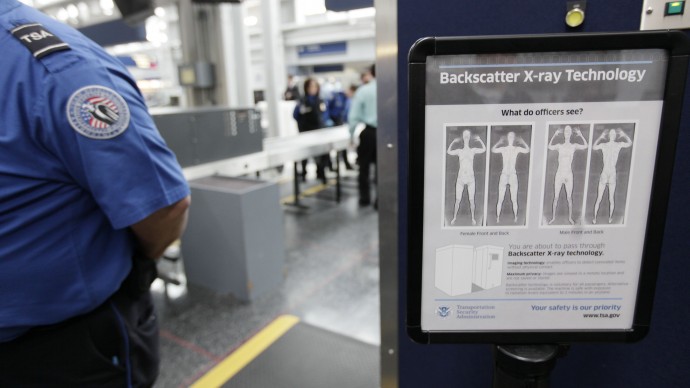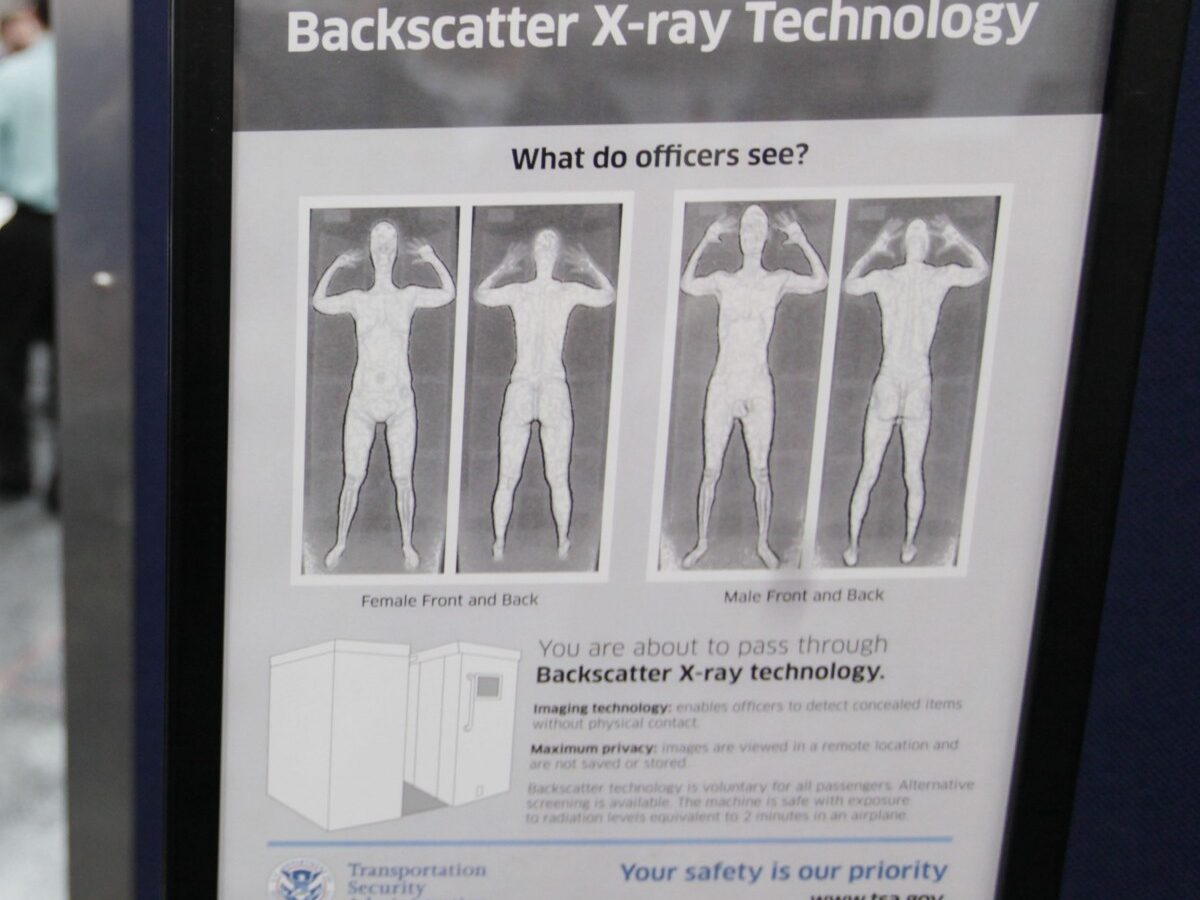
(MintPress) — The Transportation Security Administration (TSA) continues to use full body scans, a practice many believe is an invasive, unlawful intrusion into the privacy of travelers. On Wednesday, a federal appeals court demanded the TSA explain why it continues the practice in violation of a previous court order mandating that the TSA hold public hearings and a 90-day public comment period.
In post-9/11 America, there has been much discussion among policy makers about the nature of airport security and the right of Americans to privacy. Many charge that tight airport security has prevented a terrorist attack. Indeed in the 11 years after the Sept. 11 attacks, there has not been a single successful terrorist incursion on U.S. soil. However, critics of full-body scans and invasive airport security are growing in numbers, prompting public pushback on an array of security measures which may limit, or violate personal privacy. The TSA has said that it would respond to the court request in one year’s time.
The right to privacy
Last year, a legal challenge by the Electronic Privacy Information Center (EPIC) was denied by a U.S. Circuit Court of Appeals in the District of Columbia. However, the court ruled that the TSA must hold a 90-day public comment period in which citizens can file complaints, comments and questions relating to the use of full body scanners in more than 78 airports nationwide.
According to its website, EPIC is “a public interest research center in Washington, D.C. It was established in 1994 to focus public attention on emerging civil liberties issues and to protect privacy, the First Amendment and constitutional values.” EPIC advocates for a wide range of personal liberties, including online privacy.
Airline passengers can still decline a full body scan, but then must submit to a full pat-down which includes allows a TSA agent to touch all parts of a passenger’s body, including the genitals.
There is, of course, no constitutional amendment, nor any guaranteed “right” to privacy. However, some lawmakers and Supreme Court justices have previously argued that the Bill of Rights, a collective set of guaranteed personal liberties, would justify the reasonable right to privacy.
This, some justices say, is contained in the “penumbra”, or the shadow cast, by the expansive personal liberties of the Bill of Rights.
EPIC and other rights groups, including the American Civil Liberties Union (ACLU), have previously tried to argue that full body scans violate the Fourth Amendment, which prohibits law enforcement from conducting unreasonable searches and seizures. However, previous legal challenges using this argument have failed.
Despite these setbacks, EPIC members continue to fight back. Marc Rotenber, EPIC executive director, commented on the issue in a recent interview, saying, “Right now TSA officials basically have a daylong peep show of passengers.”
The TSA began using full body scanners in 2007 amidst intense public scrutiny. They are now used widely in many airports because they can quickly and accurately scan a passenger’s body in less than 15 seconds to determine if they are carrying weapons or banned materials.
One-billion dollars of federal stimulus money was allocated to the expand the use of full body scanners using advanced imaging technology, as most airports across the U.S. are expected to integrate these scanners into their security procedures.
TSA security can view the images of a passenger’s naked body on a computer screen. The TSA agent viewing the images is in a private area where the public cannot view the images on the computer screen.
Protests
Previously, some Americans have protested full body scans by going through airport security wearing bathing suits, underwear or fully nude.
One of the most prominent protests happened January, when Kentucky Sen. Rand Paul refused to submit to a full body pat-down. Sen. Paul, the son of Texas Congressman Ron Paul, was traveling through the Nashville airport when the full-body scan triggered an alarm.
Paul was asked to step aside to receive a full body pat-down by TSA agents, but refused to go through with the process. The senator asked to go through the scan again, but was told that he had to submit to a pat down because of “irregularities” in the scanning procedure.
The TSA issued a statement in response to the incident saying, “Passengers, as in this case, who refuse to comply with security procedures are denied access to the secure gate area. He was escorted out of the screening area by local law enforcement.”
Paul was then escorted away from the security area where he was detained and not allowed into the gate area. Paul wrote a statement on his Twitter page in response the event saying, “Today I’ll speak to the March for Life in DC. A nation cannot long endure without respect for the right to life. Our liberty depends on it.”
Paul is a self-described Libertarian and member of the Tea Party movement. The issue is one that unites large numbers of Libertarians and liberals who believe that body scans and pat downs diminish individuals liberties.
The continued public resistance is having an economic impact as well. According to a 2008 public opinion survey air travelers “avoided” 41 million trips because they believed the air travel system was either “broken” or in need of “moderate correction,” according to the U.S. Travel Association. These decisions cost airlines $9.4 billion in lost revenue.


